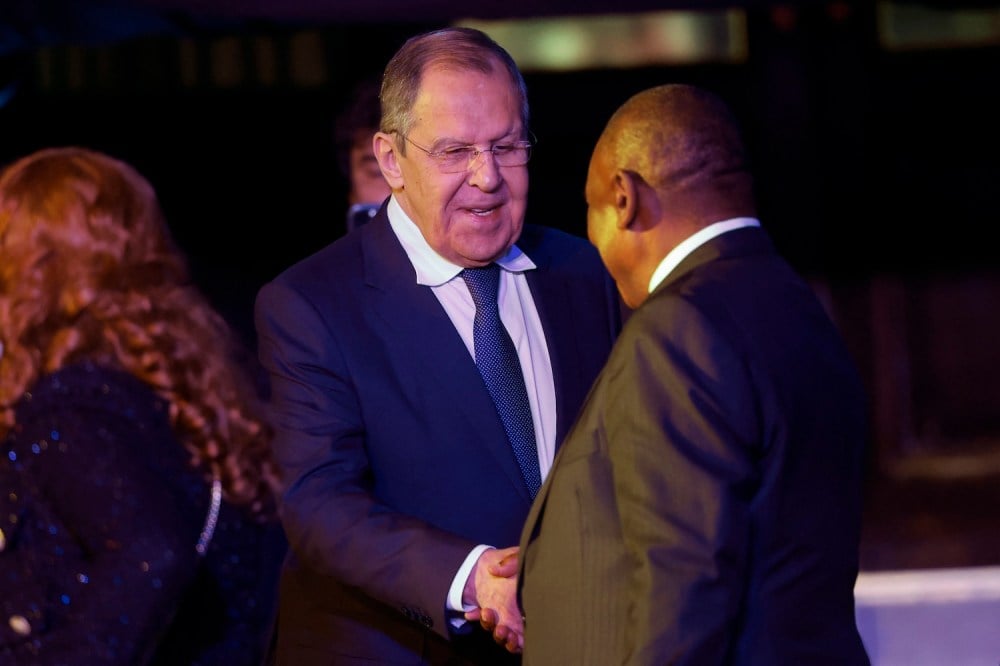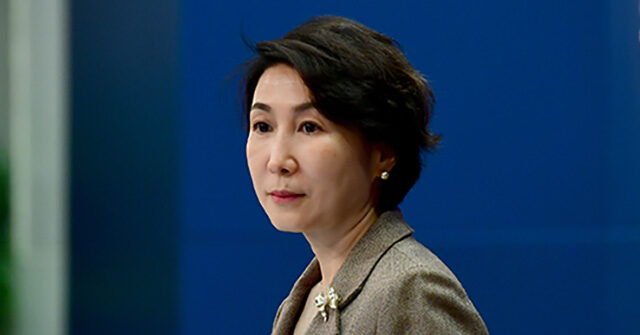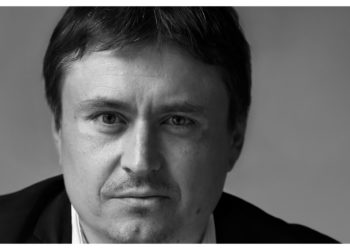When the West slammed severe sanctions on Russia after its illegal invasion of Ukraine in 2022, practically the entire global south refused to participate. Attempts by the Biden administration to enlist countries in Latin America, Africa, and Asia to participate in the tough measures against Russia yielded only one signatory: Singapore.
With Donald Trump’s return to the White House, the question of imposing costs on Russia through pressuring third countries has stayed on the agenda, but with tariffs as the preferred tool. Trump has recently turned his ire on India, implementing an additional 25 percent tariff on its imports to pressure New Delhi to stop buying oil from Moscow.
After many twists and turns in Trump’s push for peace in Ukraine, the latest summitry in Alaska and Washington, D.C., holds some promise. Yet, the ultimate outcome remains highly uncertain. Sen. Lindsey Graham, a prominent Republican, is continuing to threaten more severe costs on any country that buys energy from Russia, such as India and Brazil, in an effort to push Russian President Vladimir Putin to end the war.
But if Washington thinks an aggressive push will wean the global south off Russia, then it should think again. States in the global south have good reasons to retain their ties to Moscow and even welcome its persistence as a great power in the global order.
It’s true that much of Africa, Asia, and Latin America did vote at the United Nations to condemn Russia’s invasion of Ukraine. Most of these states disapproved of the violation of Ukraine’s sovereignty and territorial integrity, were concerned about implications for food security, and did not take kindly to hints of Russian nuclear use. But they also saw the causes of the war as complex, with the steady expansion of NATO close to Russia’s borders as being one factor. And they were very aware of the West’s own double standards and failed promises. Indonesia’s Ukraine peace plan and a mission by a set of African states, both of which were proposed in 2023, demonstrated the global south’s search for a middle ground between Russian and Western narratives.
Moreover, a substantial number of states in the global south abstained or did not vote on U.N. resolutions condemning the invasion. This included practically all of South Asia, close to half of African states, and even some Southeast Asian countries.
Why is the global south giving so much leeway to Russia? One obvious reason is that Russia is a giant player in defense and energy, and many states in the global south are major importers of both. Russia is the biggest source of imported arms for India, Algeria, and Vietnam. In several African states, especially in the Sahel, Russia has stepped in as security guarantor, displacing France and the United States. On the energy and trade front, India and Turkey are major importers of Russian oil, and Brazil relies greatly on Russian fertilizers to keep its massive agro-business sector humming, as do Mexico and Colombia. Russia is also the biggest international player for nuclear energy, with active projects in multiple countries, including Bolivia, Egypt, India, Iran, and Turkey.
But Russia’s defense and economic ties are critical to only a minority of states in the global south. There is a lot more going on here than just transactional interests, and it has to do with deeper geopolitical and historical drivers.
Geography matters hugely in geopolitics, and it just so happens that Russia is located to the extreme north of the Eurasian landmass. The modern Russian nation-state is also a result of the collapse of the Soviet Union. The upshot of all this is that Russia is almost entirely separated from the global south by a buffer of former Soviet states. Those in the global south have little reason to fear Russian tanks rolling in. The geographic separation also means that Russia, unlike China, does not have any territorial disputes with any states in the global south.
The Cold War showed that great powers can destabilize weaker powers at a distance. Many global south leaders and elites did indeed fear subversion by Moscow during that period. But the Soviet Union’s acts of destabilization were driven by Moscow’s ideological drive to export communism. Marxism-Leninism’s abject failure discredited it in the eyes of the world. Russia has turned toward idolizing Peter the Great rather than Vladimir Lenin. Moscow is no longer interested in exporting its system of government or its reigning creed of Russian nationalism to the developing world—any of its expansionist ambitions are confined to its borderlands. Russian mercenary and more formal interventions in Africa appear to run counter to this trend. But Moscow has instrumentalized popular anti-colonial sentiments to gain a foothold in the Sahel and elsewhere, though it has started running into similar counterinsurgency failures that France did.
Russia, with its massive landmass, nuclear arsenal, defense and energy self-reliance, and autonomous capability for extra-regional power projection, qualifies as a great power. It also still carries the institutional DNA of the Soviet empire and its global reach. However, Russia is the weakest of the three great powers; the United States and China are clearly more powerful. In other words, Russia is strong enough to place a degree of check on U.S. and Chinese bids for hegemony, but not enough to emerge as a global hegemon itself. This is the Goldilocks zone that states in the global south are quite comfortable with.
Almost all in the global south desire multipolarity in the global order. For instance, BRICS nations (eight out of 10 of which are from the global south) spoke of “jointly seeking shared solutions to global challenges and fostering [a] multipolar world” at a July summit in Rio de Janeiro. They also asserted that multipolarity “can expand opportunities” for states in the global south “to develop their constructive potential and enjoy universally beneficial, inclusive and equitable economic globalization and cooperation.”
Waltzian neorealists see a bipolar world as being more stable than a multipolar one. But for rising states with expanding ambitions, three great powers are preferable to two. Bipolarity creates pressures toward the formation of a binary—two opposing blocs as a stark choice, as witnessed during the Cold War. The binary presents the global south with an unpalatable decision of fully aligning with one bloc or the other, or risk becoming a proxy war battleground if it resists both. Alternatively, a G-2 arrangement (in which two superpowers in a bipolar world cut a backroom deal) could take on a spheres of influence format, which would create even greater pressures on the global south to conform to rules set by the mighty.
For these reasons, Russia’s continuing viability as the third great power is seen as desirable by most states in the global south. With three great powers active, the situation becomes a little easier for them. A G-3 is harder to pull off than a G-2. Middle powers can more easily play three great powers off in combinations than two. In general, multipolarity gives greater strategic space for those not inside the great-power club. It may even enhance the possibility of a few states in the global south achieving great-power status down the road.
The global south’s relatively benign view of Russia is complemented by Russia’s own efforts to entrench itself not just in Africa, but also in Asia. Putin has tried to deepen ties with Vietnam; relations with India are resilient despite Washington’s threats; and Indonesia’s president skipped the G-7 meeting this year and went to Russia instead. Moscow is showing that it is far from being isolated and is instead burnishing its credentials as a great power and resisting U.S. primacy to the extent that it can.
The post Why the Global South Won’t Quit Russia appeared first on Foreign Policy.




